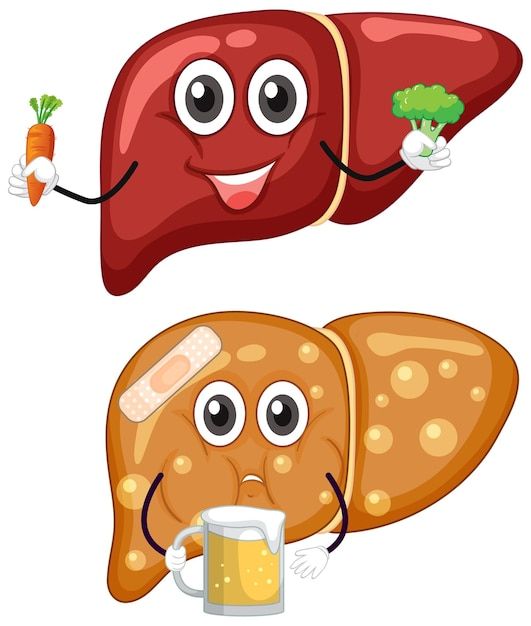

Introduction
Globally, fatty liver disease, also known as hepatic steatosis, is becoming a bigger health concern. It happens when fat builds up in the liver’s cells, making it harder for the liver to work effectively. Fatty livers can develop into more severe diseases including cirrhosis, liver fibrosis, and even liver cancer if they are not treated. But the good news is that, with early intervention, fatty liver disease is largely preventable and reversible.
The causes, symptoms, prevention techniques, dietary advice, and drugs that can help manage fatty liver disease will all be covered in this blog. Let’s look at both natural and medical ways to protect your liver.

What is fatty liver disease?
Fatty liver disease is classified into two main types:
1. Non-Alcoholic Fatty Liver Disease (NAFLD)
NAFLD occurs in people who drink little to no alcohol. It’s commonly linked to obesity, diabetes, and high cholesterol.
2. Alcoholic Fatty Liver Disease (AFLD)
This type is caused by excessive alcohol consumption, which damages liver cells and promotes fat accumulation.
Causes of Fatty Liver Disease
Understanding what causes fatty liver disease can help prevent it.
Common Causes
Poor Diet: High consumption of refined carbs, trans fats, and sugary foods.
Obesity: Excess body weight, particularly belly fat.
Type 2 Diabetes: High blood sugar can contribute to fat buildup in the liver.
High Cholesterol: Increases fat storage in liver cells.
Alcohol Consumption: A primary cause in alcoholic fatty liver disease.
Sedentary Lifestyle: Lack of physical activity reduces metabolism, promoting fat storage.
Certain Medications: Some drugs like corticosteroids and methotrexate can trigger fatty liver.
Lesser-Known Causes
Genetic Factors: Family history may increase your risk.
Rapid Weight Loss: Sudden weight changes can shock the liver.
Environmental Toxins: Exposure to industrial chemicals.
Fatty Liver Disease Symptoms
disease is often called a “silent disease” because symptoms may not appear in the early stages. But as the condition progresses, the following symptoms may arise:
Fatigue
Abdominal discomfort
Unexplained weight loss
Weakness
Nausea
Jaundice (yellowing of the skin and eyes)
Swollen abdomen (ascites)
How to Prevent Fatty Liver Disease
Preventing fatty liver disease revolves around lifestyle changes and mindful habits.
1. Maintain a Healthy Weight
Lose weight gradually.
Avoid crash diets.
2. Adopt a Balanced Diet
Focus on liver-friendly foods:
Foods to Include:
Leafy greens (spinach, kale)
Cruciferous vegetables (broccoli, cauliflower)
Fresh fruits (berries, apples)
Whole grains (quinoa, oats)
Lean proteins (chicken breast, fish, tofu)
Healthy fats (olive oil, avocados, nuts)
Foods to Avoid:
Fried foods
Processed snacks
Sugary beverages
Refined carbs (white bread, pasta)
Red meats and high-fat dairy
3. Exercise Regularly
Engage in at least 150 minutes of moderate aerobic exercise per week. Activities include:
Brisk walking
Cycling
Swimming
Strength training
4. Limit Alcohol Consumption
If possible, avoid alcohol altogether, especially if you already have fatty liver disease.
5. Monitor Your Health
Regular health checkups
Monitor liver enzymes and cholesterol levels
6. Manage Chronic Conditions
Control diabetes, high blood pressure, and cholesterol with medication and lifestyle changes.

Recommended Diet for Fatty Liver Disease
Mediterranean Diet
This diet focuses on
Olive oil
Whole grains
Fruits and vegetables
Lean protein like fish
2. Low-Carb Diet
Reducing carbs can decrease liver fat.
3. High-Fiber Foods
Fiber helps control weight and blood sugar levels.
Home Remedies and Natural Approaches
1. Herbal Teas
Dandelion root tea
Green tea
2. Apple Cider Vinegar
Some studies suggest it may help reduce liver fat.
3. Lemon Water
Rich in vitamin C and antioxidants.
Medicines That Help in Managing Fatty Liver Disease
Commonly Prescribed Medicines
Vitamin E
An antioxidant shown to improve liver function in non-diabetic fatty liver patients.
Pioglitazone
Helps manage insulin resistance, commonly used in diabetic patients.
Omega-3 Fatty Acid Supplements
Reduce triglycerides and inflammation.
Ursodeoxycholic Acid (UDCA)
Sometimes used to protect liver cells.
Metformin
Primarily for diabetes but may also help with fatty liver in some cases
When to See a Doctor
Seek medical attention if you experience:
Persistent fatigue
Severe abdominal pain
Yellowing of the skin or eyes
Unexplained weight loss
Final Thoughts
Fatty liver disease is a silent but serious threat to your overall health. The good news is that with lifestyle changes, healthy eating habits, regular exercise, and appropriate medical support, you can prevent or even reverse this condition.
Start today by adopting a liver-friendly lifestyle and consult your healthcare provider for personalized guidance.
